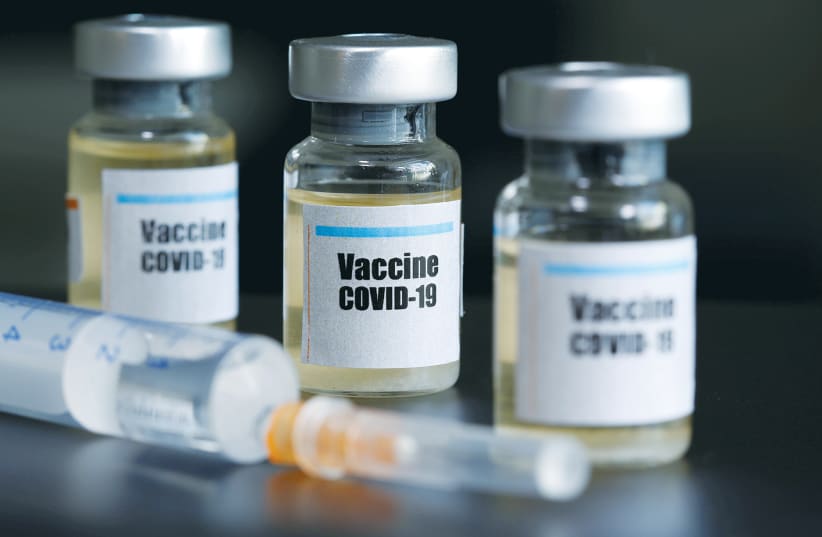More than 100 doctors and medical staff from Maimonides Medical Center, a major US hospital at the forefront of the fight against the coronavirus, have expressed a strong interest in a vaccine developed in Russia called Sputnik V, meeting with Russian scientists from the Gamaleya National Research Center of Epidemiology and Microbiology in an online briefing on Tuesday, according to a press release from the group.
The Maimonides Medical Center is a top-ranked US hospital known for treating heart attacks, heart failure and pneumonia, while also taking a leading role in helping coronavirus patients since the outbreak in March 2020. Those who took part in the briefing have an extensive background in aiding COVID-19 patients with treatments.
The Russian scientists spoke of the vaccine's development in stages and the results of clinical trials, in addition to emphasizing the advantages of the human adenoviral vector platform used in Sputnik V over untested technologies such as the monkey adenoviral vector platform or mRNA technology, the latter of which has not been studied for potential side effects on fertility and cancer risks.
During the briefing, the scientists also spoke about the administration of the vaccine in a two-shot model using two different human adenoviral vectors, Ad5 and Ad26, for each shot. This makes it different from other vaccines based on only one type of human adenoviral vector in a single-shot model.
While controversy has arisen as to the safety of the Russian vaccine, results of Phase I and Phase II clinical trials of the Sputnik V vaccine were published on September 4 in The Lancet, one of the leading international medical journals, showing no serious adverse effects and a stable immune response in 100% of the subjects.
Phase III clinical trials are still ongoing, which are expected to be published in October-November. At the moment, more than 50 countries in Europe, the Middle East and Latin America have applied for the Russian vaccine.
Dr Jacob Shani, professor of medicine and chairman of the Heart and Vascular Center and the Department of Cardiology at Maimonides Medical Center, said: “We were very excited to hear from the two scientists about the Sputnik V vaccine and were very impressed with the data the Gamaleya Center scientists presented.We read the publication in The Lancet journal and this publication was also very impressive," he said. "It showed good results of the Phase 1 and 2 trials, including the development of antibodies, cellular immunity and only minimal side effects. It was all very encouraging. "On a personal level we were impressed with the Gamaleya scientists. They were very professional, knowledgeable and, most importantly, they appeared to be very transparent. They answered every question without hesitation. If the vaccine performs as the data suggests, you have a very good vaccine on your hands. Obviously, time will tell if the vaccine is effective. So far we know that it produces antibodies, we know that it is safe," he said."Now we need to know if it indeed protects from COVID-19. I personally asked the scientists a question if any of the people who were vaccinated got infected and the answer was no. I am very eager to learn about the results when a larger group of people will be vaccinated,” Shani added.
Dr. Alexander Gintsburg, Head of the Gamaleya National Research Center of Epidemiology and Microbiology, said that “our key mission is to provide timely and detailed information about the Sputnik V vaccine in a transparent manner for all interested parties. We were delighted to share this information with colleagues from Maimonides Medical Center, one of the most respected US medical institutions directly involved in fighting the COVID-19 pandemic.
"We also appreciated the professional, non-partisan approach by the US doctors, who, just as their Russian colleagues, are tired of the pandemic and would like to see a working, effective and safe vaccine against COVID-19 as soon as possible. We regard international cooperation on the vaccine as key to a decisive victory over COVID-19 and will work towards this goal with our partner, the Russian Direct Investment Fund,” Gintsburg said in a statement.
